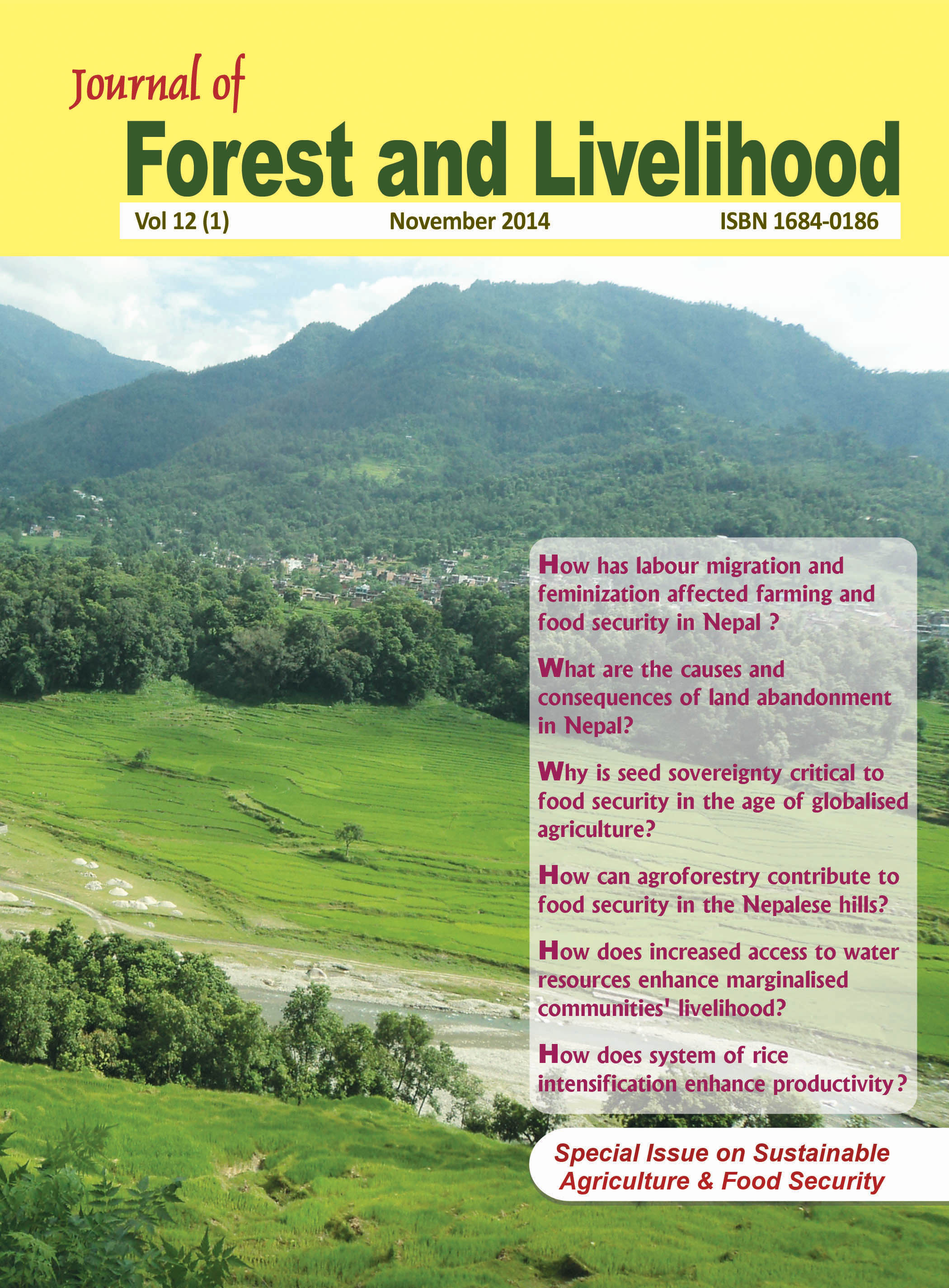System of Rice Intensification (SRI): A Potential Approach to Enhance Rice Productivity and Food Security
Keywords:
SRI, rice cultivation practice, productivity, food security, control irrigationAbstract
Rice is one of the prominent staple cereal crops of Nepal. However, the productivity of rice is low as a result the condition of food security is worsening. Therefore, transformation of conventional rice cultivation practice is an urgent need to address the issue of food security. In this context, System of Rice Intensification (SRI) can be a potential innovative rice farming practice to substantially increase the productivity with less agronomical inputs. SRI is based on three principles: i) Early and quick establishment of healthy plants ii) Reduced plant density: iii) Reduced and controlled water applications. This paper attempts to succinctly review the present situation of SRI in Nepal and its benefits, along with its limitations and criticisms. Several studies have shown that SRI practices have numerous benefits such as increasing productivity; curbing water requirement; reducing the cost of cultivation; offering the crop resistance to biotic and abiotic stresses; improving soil condition; and lowering greenhouse gas emission. However, the practice has some limitations and criticisms, hindering its wider adoptability. Therefore, extensive research and extension programs should be launched to promote SRI among the rice farmers. In addition, government should formulate appropriate policies and regulations to widely establish this system in Nepal.
Downloads
Downloads
Published
How to Cite
Issue
Section
License
Copyright (c) 2014 ForestAction

This work is licensed under a Creative Commons Attribution-NonCommercial 4.0 International License.
CC-BY-NC: This license allows reusers to distribute, remix, adapt, and build upon the material in any medium or format for noncommercial purposes only, and only so long as attribution is given to the creator.





